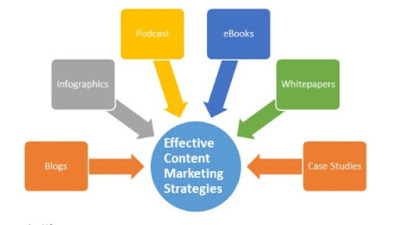Search Engine Optimization (SEO)
SEO means Searching for good results in English search engines. Website developers mainly use the process to optimize the website's technical setup, content relevance, and link popularity to make it more easily accessible and relevant to user requests. Improved positions in search engines. For search engine optimization, it is recommended to focus on SEO activities that will improve the search experience of users by displaying content based on their searches.
What is SEO - search engine optimization?SEO stands for Search Engine Optimization, which refers to the practice of improving a website's visibility and ranking on search engine results pages (SERPs).
The goal of SEO is to optimize the content and structure of a website to increase its organic search traffic from search engines like Google, Bing, and Yahoo. SEO involves a variety of techniques, including keyword research, on-page optimization, content creation, link building, and technical optimization.
Keyword research is the process of identifying and targeting the keywords and phrases that users are searching for and optimizing website content to include those keywords.
On-page optimization involves optimizing website content, including titles, meta descriptions, and header tags, to improve its relevance and readability to users and search engines.
Content creation involves creating high-quality, informative, and engaging content that appeals to both users and search engines. This content can include blog posts, articles, infographics, videos, and more.
Link building involves acquiring high-quality, relevant links from other websites to your website. This can help improve your website's authority and visibility on search engine results pages.
Technical optimization involves making changes to the website's structure, design, and code to improve its visibility and ranking on search engine results pages. This may include improving site speed, implementing schema markup, optimizing for mobile devices, and securing the website with HTTPS.
Overall, SEO is a fundamental component of digital marketing as it helps businesses reach a larger audience, increase their online visibility, and drive more traffic to their website.
SEO Strategies: Black Hat vs. White hat
There are two main types of SEO strategies: black hat and white hat.
Black Hat SEO strategies are aggressive techniques used to manipulate search engines and increase a website's ranking on search engine result pages (SERPs) through deceptive and unethical practices. These strategies violate search engine guidelines and can result in a website being penalized or even banned from search engines. Some examples of Black Hat SEO strategies include keyword stuffing, cloaking, hidden text, link schemes, and content scraping.White Hat SEO strategies, on the other hand, are legitimate and ethical techniques used to improve a website's ranking on search engine results pages. These strategies follow search engine guidelines and focus on improving the website's user experience and relevance to users. Some examples of white hat SEO strategies include keyword research, on-page optimization, content creation, link building, and technical optimization.
White hat SEO strategies generally take longer to show results, but are more sustainable and are less likely to result in a website being penalized or banned from search engines. In contrast, Black Hat SEO strategies can produce faster results, but are risky and can damage a website's reputation and ranking in the long run.
It is important for businesses to choose a reputable and experienced SEO professional or agency that follows white hat SEO practices and can help them achieve long-term sustainable results.
Why is SEO important?
Higher credibility – Websites and web pages that rank higher in search engine results are often perceived as more credible and trustworthy. This is because search engines use complex algorithms to determine the relevance and quality of a website or web page, so higher rankings can indicate that the website or web page is a source of information. reliable.
Competitive Advantage – SEO can help a website or business gain a competitive advantage over others in the same industry or niche. By optimizing their website or web pages for search engines, businesses can increase their visibility and reach a larger audience, which could attract more customers and generate more revenue.
Cost-effective – Compared to other forms of digital marketing, such as paid advertising, SEO can be a cost-effective way to drive traffic and increase visibility. While it may require an initial investment of time and resources to optimize a website or web page, the long-term benefits can far outweigh the costs.
In general, SEO is an important part of any digital marketing strategy, as it can help increase visibility, credibility, and competitiveness in the online marketplace.
How do I rank faster on Google?
Ranking faster on Google isn't always easy, and there are no guaranteed shortcuts or quick fixes. However, there are a few things you can do to help improve your chances of ranking higher in search engine result pages (SERPs) more quickly:
Choose the right keywords – Choose relevant and specific keywords that people are actively searching for. Do extensive keyword research to identify long-tail keywords that are less competitive but still have decent search volume.
Optimize your website – Optimize your website for search engines by making sure it is fast, user-friendly, mobile responsive, and easy to navigate. Use high-quality, relevant content that is optimized for your target keywords and include internal and external links to authoritative sources.
Build High-Quality Backlinks – Get high-quality backlinks from trusted websites in your industry. Reach out to relevant websites to ask for backlinks or create content that is valuable and shareable, which can naturally attract backlinks.
Use social media – Use social media platforms to promote your content and engage with your target audience. Share your website content, blog posts, and other resources on social media to increase visibility and drive traffic to your website.
Monitor your progress – Use tools like Google Analytics to monitor your website's performance and track your progress over time. This can help you identify areas where you can improve your SEO strategy and adjust accordingly.
Remember that SEO is a long-term strategy that requires constant effort and dedication. While there may not be quick fixes, consistently implementing these best practices can help improve your chances of ranking faster on Google.
SEO, or search engine optimization, is important for several reasons:
Increased Visibility – SEO helps to increase the visibility of a website or web page in the search engine results pages (SERPs). This means that more people are likely to view and click on the website or web page, which can lead to increased traffic and potential business opportunities.Higher credibility – Websites and web pages that rank higher in search engine results are often perceived as more credible and trustworthy. This is because search engines use complex algorithms to determine the relevance and quality of a website or web page, so higher rankings can indicate that the website or web page is a source of information. reliable.
Competitive Advantage – SEO can help a website or business gain a competitive advantage over others in the same industry or niche. By optimizing their website or web pages for search engines, businesses can increase their visibility and reach a larger audience, which could attract more customers and generate more revenue.
Cost-effective – Compared to other forms of digital marketing, such as paid advertising, SEO can be a cost-effective way to drive traffic and increase visibility. While it may require an initial investment of time and resources to optimize a website or web page, the long-term benefits can far outweigh the costs.
In general, SEO is an important part of any digital marketing strategy, as it can help increase visibility, credibility, and competitiveness in the online marketplace.
How do I rank faster on Google?
Ranking faster on Google isn't always easy, and there are no guaranteed shortcuts or quick fixes. However, there are a few things you can do to help improve your chances of ranking higher in search engine result pages (SERPs) more quickly:
Choose the right keywords – Choose relevant and specific keywords that people are actively searching for. Do extensive keyword research to identify long-tail keywords that are less competitive but still have decent search volume.
Optimize your website – Optimize your website for search engines by making sure it is fast, user-friendly, mobile responsive, and easy to navigate. Use high-quality, relevant content that is optimized for your target keywords and include internal and external links to authoritative sources.
Build High-Quality Backlinks – Get high-quality backlinks from trusted websites in your industry. Reach out to relevant websites to ask for backlinks or create content that is valuable and shareable, which can naturally attract backlinks.
Use social media – Use social media platforms to promote your content and engage with your target audience. Share your website content, blog posts, and other resources on social media to increase visibility and drive traffic to your website.
Monitor your progress – Use tools like Google Analytics to monitor your website's performance and track your progress over time. This can help you identify areas where you can improve your SEO strategy and adjust accordingly.
Remember that SEO is a long-term strategy that requires constant effort and dedication. While there may not be quick fixes, consistently implementing these best practices can help improve your chances of ranking faster on Google.
.jpg)


if you're seeking effective SEO solutions to boost your online presence, look no further than JIVA IT Solutions Best SEO Service Agency. We specialize in comprehensive SEO strategies, focusing on both white-hat techniques and tailored solutions that ensure sustainable growth. Our expert team is dedicated to improving your website’s visibility, driving organic traffic, and enhancing user experience. With a proven track record, we can help you achieve your digital marketing goals. Partner with us today for customized SEO services that deliver real results!
ReplyDeleteGreat write-up!
ReplyDeleteAt Connect Infosoft Technologies, we combine data-driven strategies with affordable SEO Packages in India to ensure long-term success.
Optimizing your website with Seo for Construction Companiescan help your business rank higher on Google, attract more clients, and grow your construction projects efficiently.
ReplyDeleteExcellent read! I’ll definitely share this with friends. Mohali’s Leading SEO Company – Increase Website Traffic
ReplyDeletef you want your website to rank faster, mix high-quality backlinks with on-page SEO and internal linking. This backlink service
ReplyDeletehelped me get contextual links from niche-related blogs.
I thought this blog's observations were excellent; it was well-written best seo company in Mumbai
ReplyDelete